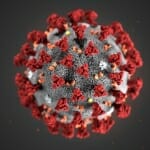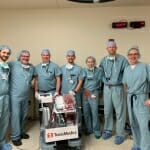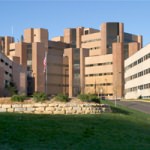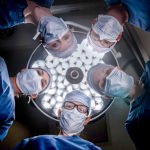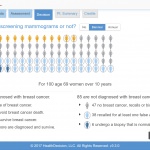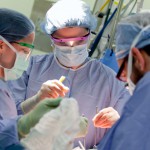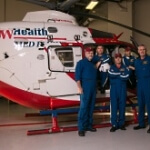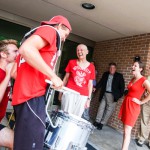Tag UW Health
School of Pharmacy team produces hand sanitizer for UW Health
The school's Zeeh Pharmaceutical Experiment Station started production on March 20 and, in less than a week, provided more than 100 gallons of vitally important sanitizer. Read More
UW Health March 19 Daily Update: Caring for Cancer Patients
The University of Wisconsin Carbone Cancer Center continues to care for cancer patients by using telehealth technology, expanding screening, and extending in-home care options to address the unique challenges created by the COVID-19 pandemic. Read More
UW Health March 18 daily update: Increased Capacity for Telehealth and Virtual Visits
UW Health is leveraging telehealth technology in responding to the COVID-19 pandemic while also addressing our community’s more routine medical needs and appointments. Read More
UW Health March 17 update: Social distancing now even more important
With today’s announcement that we have community spread of the Coronavirus in the Madison area, we want to remind everyone that practicing social distancing is CRITICALLY important. Read More
UW Health Daily Update for March 16: Social Distancing
Social distancing is a conscious effort to reduce contact between people to slow down the spread of the virus. Even if you are symptom-free and not part of an at-risk group, you still need to change your lifestyle for the time being. Read More
UW Health’s daily COVID-19 update for March 13, 2020
UW Health’s message to the community on Friday, March 13, is around COVID-19 testing. The COVID-19 situation is constantly evolving, and these decisions are made with the best interest of patient, staff and community in mind. Read More
UW Health asks patients COVID-19 screening questions
Due to the increase in respiratory illness and the rise of COVID-19 (coronavirus), UW Health is following Centers for Disease Control and Prevention (CDC) guidelines in screening its patients. Read More
University Hospital among first to perform DCD heart transplant
The milestone transplant occurred Dec. 30 as part of a clinical trial involving five medical centers nationwide. The patient is recovering and doing well. Read More
75 years later, UW–Madison inventors aim to replace old-style breast-surgery marker
Under Elucent's system, a SmartClip is placed in a patient's tumor that emits a high frequency signal or “chirp” when activated, so it can guide the surgeon to the tissue that needs to be removed. Read More
UW study: Excessive use of menthol cough drops could actually increase coughs
A new study of more than 500 patients has shown that too many cough drops - especially those containing menthol - may actually make coughs more severe. Read More
Near-miracle stroke survivor heading for repeat vacation at “Stroke Camp”
The Wisconsin Refresh and Retreat Stroke Camp is part of a national network of weekends – think summer camp – for people recovering from strokes and those who for care for them. Read More
Marriage made in heaven: Digital inhaler add-on offers slick aid to asthma care
Propeller Health makes an add-on device for inhalers that communicates with a smartphone that records the use of routine preventative medicines and “rescue” medications intended to open constricted airways. Read More
Protein’s flexibility helps its response to diverse pollutants
How some industrial pollutants or abnormal levels of cellular metabolites contribute to diverse human diseases is now more clearly understood, based on a new study from the University of Wisconsin Carbone Cancer Center (UWCCC) and the McArdle Laboratory for Cancer Research. Read More
They look like surgeons: UW Health women surgeons spark meme
Take a magazine cover drawn by a French artist, add in the feminist spirit of Wisconsin surgeons, and you get a Twitter meme that travels the world. Read More
UW-Madison spinoff releases new module to help women, doctors decide on mammogram
HealthDecision, LLC, a 7-year old startup with deep roots at the University of Wisconsin–Madison, has just released the fourth module in a series intended to help doctors and patients share decisions. Read More
Awake despite anesthesia? Study finds risk lower than thought
A new study found that, contrary to many previous studies, just more than 4 percent of surgical patients were conscious while under general anesthesia. None remembered it afterward. Read More




